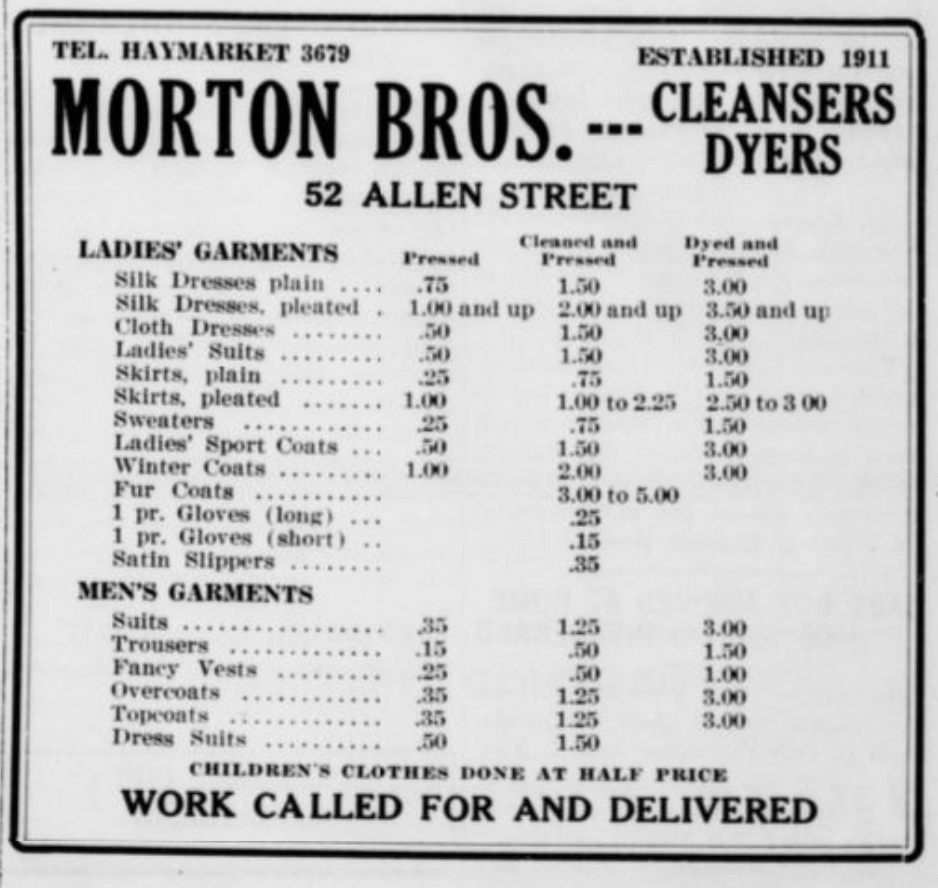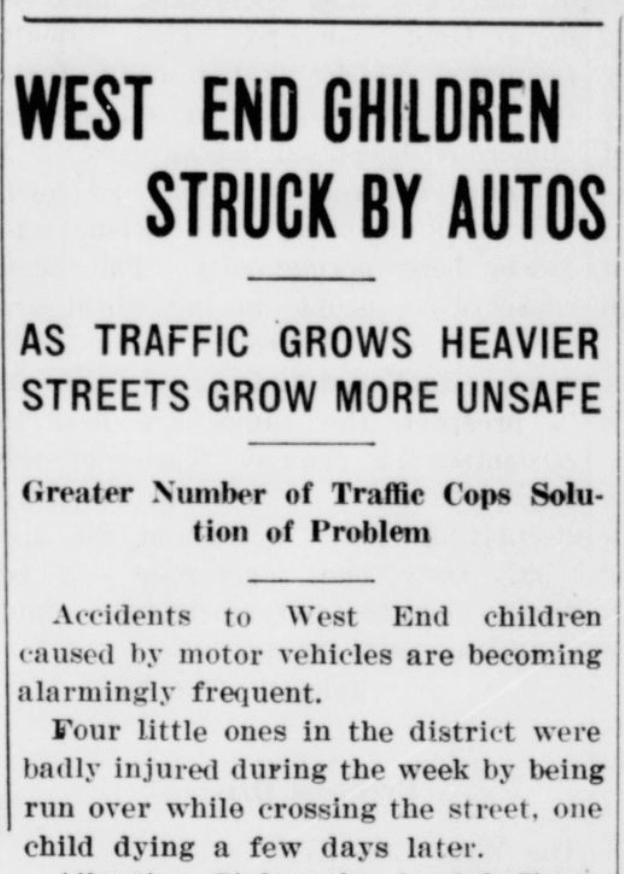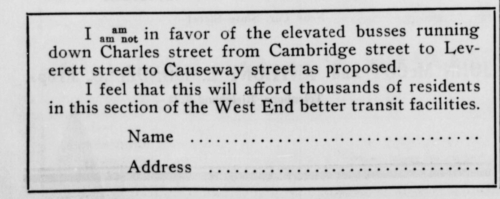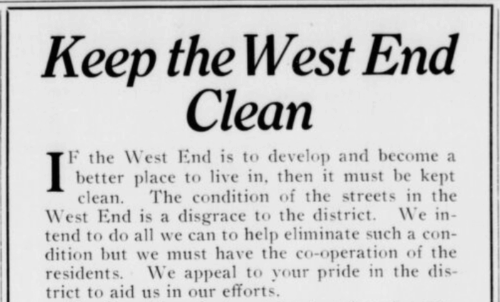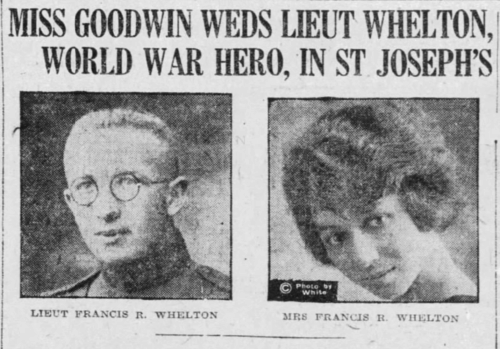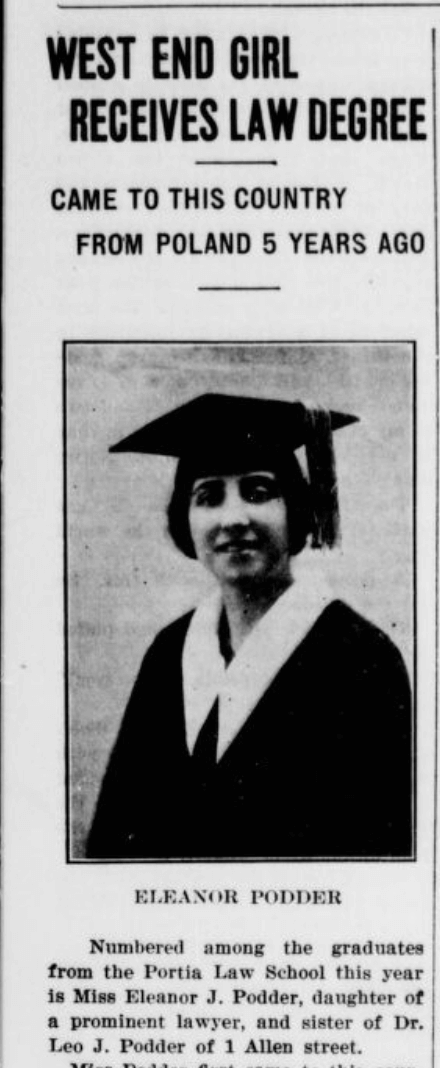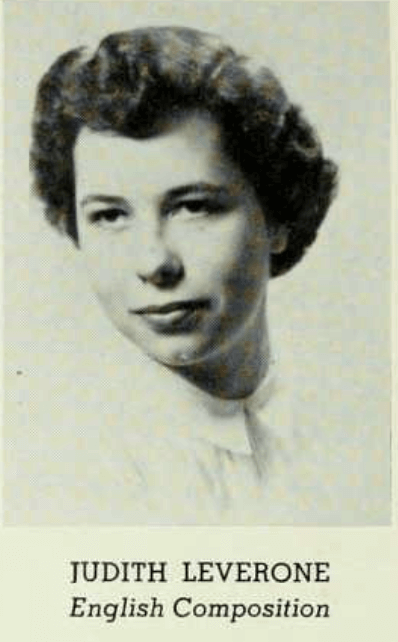The West End News: The Editor and the Publisher
Over the course of four months in the summer of 1926, Lou Coffee and Francis R. Whelton published a newspaper by West Enders for West Enders. These papers offer a glimpse into a diverse immigrant neighborhood facing the introduction of cars, lack of transit options, and mundane challenges in their daily lives. Part one of this series outlines the main focuses of the paper and the people behind its creation.
On the front page of the inaugural issue of the West End News, published on May 7, 1926, the editor declared:
“In accordance with the progress, industrially and along the West End, a group of residents has decided that the district should have a newspaper of its own. A newspaper which is of and for the West End; every interest of which is allied with the interests of the West End; in short, a publication which will be the mouthpiece of the district and its peoples.”
The paper ran for at least 16 issues in the summer months of 1926 and cost 5¢ or $1.25 for six months. This was a reasonable price when cleaning and pressing a three piece suit cost $1.25 at Morton Bros. on Allen Street. The News reported on the street level. Other papers like the Boston Globe or the New York Times would offer readers a broader picture of the world, but the News was for the West End alone. It informed its readers of the comings and goings of neighbors on vacation, the graduations of local students from high school or law school, the illnesses of local residents, the recipes of local housewives, and the dates and times of local church services. The News acted as the voice of any West Ender with something to report or something to say.
The News had everything a resident needed for entertainment and gossip. At the same time it provided a space to engage in activism. The scourge of the West End in the summer of 1926 were “autos” or cars. In a year when a local man’s purchase of a car was worthy of mention on page two of the paper, the rate of reckless or even inexperienced driving was not unexpected. However, children who were used to playing in the street were at risk from careless driving, especially after the recent widening of Cambridge Street. The editor encouraged caution and for parents to teach their children how to live around cars, but the growing pains of the new means of transportation was clear.
Many of the issues of the News contained political calls to action. One of the most important activist initiatives of the West End was advocating for better access to public transportation. The paper offered a pre-written assertion of a resident’s support for more elevated trains coming down Causeway Street which they could clip from the paper and send to the relevant authorities.
Another editorial encouraged residents to not leave trash piled on the streets in the hot summer sun lest the whole area smell. As the fall approached and the primary season entered its final weeks, the editor emphasized the “certain important responsibilities of the office” of District Attorney including his duty to “watch and guard the rights and liberties of the people.”
The two individuals behind News were the publisher Francis R. Whelton and the editor Lou Coffey. Coffey and Whelton seemingly ran in similar West End Social Circles. While the identity of Francis Whelton can’t be absolutely confirmed, a likely candidate is the son of Daniel Whelton (1872-1953), the first Irish acting-mayor of Boston who was an associate of Ward Boss Martin Lomasney. The younger Whelton (1897-1946) was born and raised in the West End. He attended MIT and left to join the army during the First World War. He was wounded and presumed dead, but returned home and decorated with medals. In the decades that followed, he stayed involved in veterans groups in the West End. At some point in his life he returned to school and became a lawyer who worked in the orbit of the Boston government and the court. It is not clear how involved Whelton was in the News, but as a more established member of society with city hall connections, it is plausible that he facilitated access for the News to printers and sources.
The editor of the News was almost certainly Julia “Lou” Coffey (1899-1974), an aspiring reporter, who was working and likely living with her parents in 1926. Coffey came from a West End family and her work editing the neighborhood newspaper impressed the city editor of the Boston Telegram. Coffey was hired at the Telegram by late August of 1926, which is likely why the News stopped publishing after only 16 issues. Considering that very few of the articles in the News had bylines, it’s likely that Whelton and Coffey produced much of the content, conducted the interviews, and organized the production of the paper with the latter seemingly contributing the most. Under Coffey’s editorial hand, the News emphasized the accomplishments of local women in business, young female graduates of law and high schools. She made sure to put in recipes, birth and marriage announcements, and, most of all, provided a place for concerned mothers to voice their concerns about traffic accidents and other threats to the neighborhood.
Coffey married Louis Leverone in 1927 with whom she had two children. By 1950, Julia and Louis were divorced with Louis having remarried. Coffey continued to use her ex-husband’s name and worked for many years as the credit manager of the Boston department store Fredley’s. She saw her daughter graduate from Barnard College in 1953 and eventually moved to Florida where she passed away in 1974.
The next article in this series will include some of the stories that captivated the subscribers of the News during the summer of 1926.
Article by Jaydie Halperin, edited by Bob Potenza
Sources: Ancestry.com, Julia Coffey Leverone: 1920 Census, 1940 Census, 1950 Census, New Hampshire Marriage Index; Ancestry.com Francis R. Whelton: 1930 Census, 1940 Census, Massachusetts Birth Records, Massachusetts Institute of Technology Yearbook, World War II Draft Card, Francis R. Whelton; The Boston Globe, April 20, 1922, pg 8, April 28, 1922, pg. 19, August 27, 1926, pg 17, August 2, 1932, pg. 15, March 7, 1946, pg 19, December 14, 1950, pg 44, December 15, 1952, pg.4, June 2, 1953, pg. 7, January 12, 1975, pg 74. December 23, 2020, pg C11; Boston Public Library, The West End News Collection, Digital Commonwealth.



